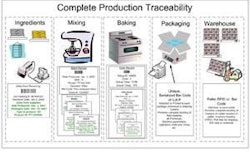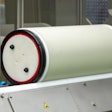Growth assays were performed to determine lysine bioavailability for kittens and rats in untreated and heated casein; these values were compared with estimates obtained with an in vitro method. Body weight, food intake, nitrogen and dry matter digestibility and plasma lysine were determined during an 80-day growth trial with kittens. Body weight and food intake were determined during a 21-day growth trial with weanling rats.
The growth data showed bioavailable lysine to be 102.4% and 100.2% (for untreated casein) and 66.1% and 51.7% (for heated casein) for kittens and rats, respectively. There was no relationship between plasma lysine and dietary lysine concentrations for kittens, nor significant differences in nitrogen or dry matter digestibility among diets for kittens.
Heat treatment of casein resulted in significantly decreased lysine bioavailability as estimated by all methods. For untreated casein, both growth assays showed good agreement with the in vitro method for available lysine. For heated casein, the rat growth assay significantly underestimated bioavailable lysine as determined in kittens while the in vitro method closely approximated this value for the cat.
Source : J.A. Larsen et al., 2010. Bioavailability of lysine for kittens in overheated casein is underestimated by the rat growth assay method. JAPAN online June 2010. doi: 10.1111/j.1439-0396.2010.00988.x

















